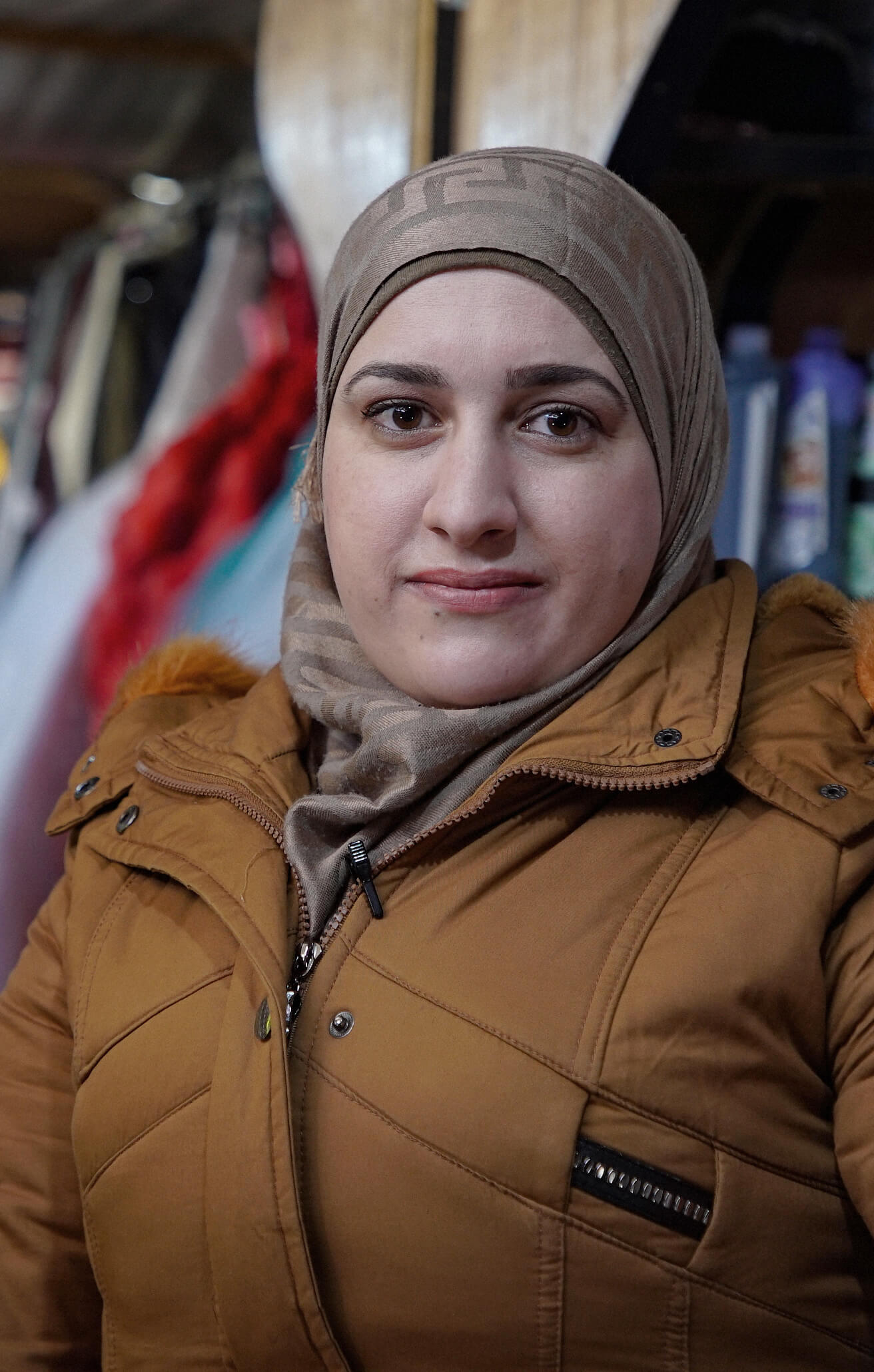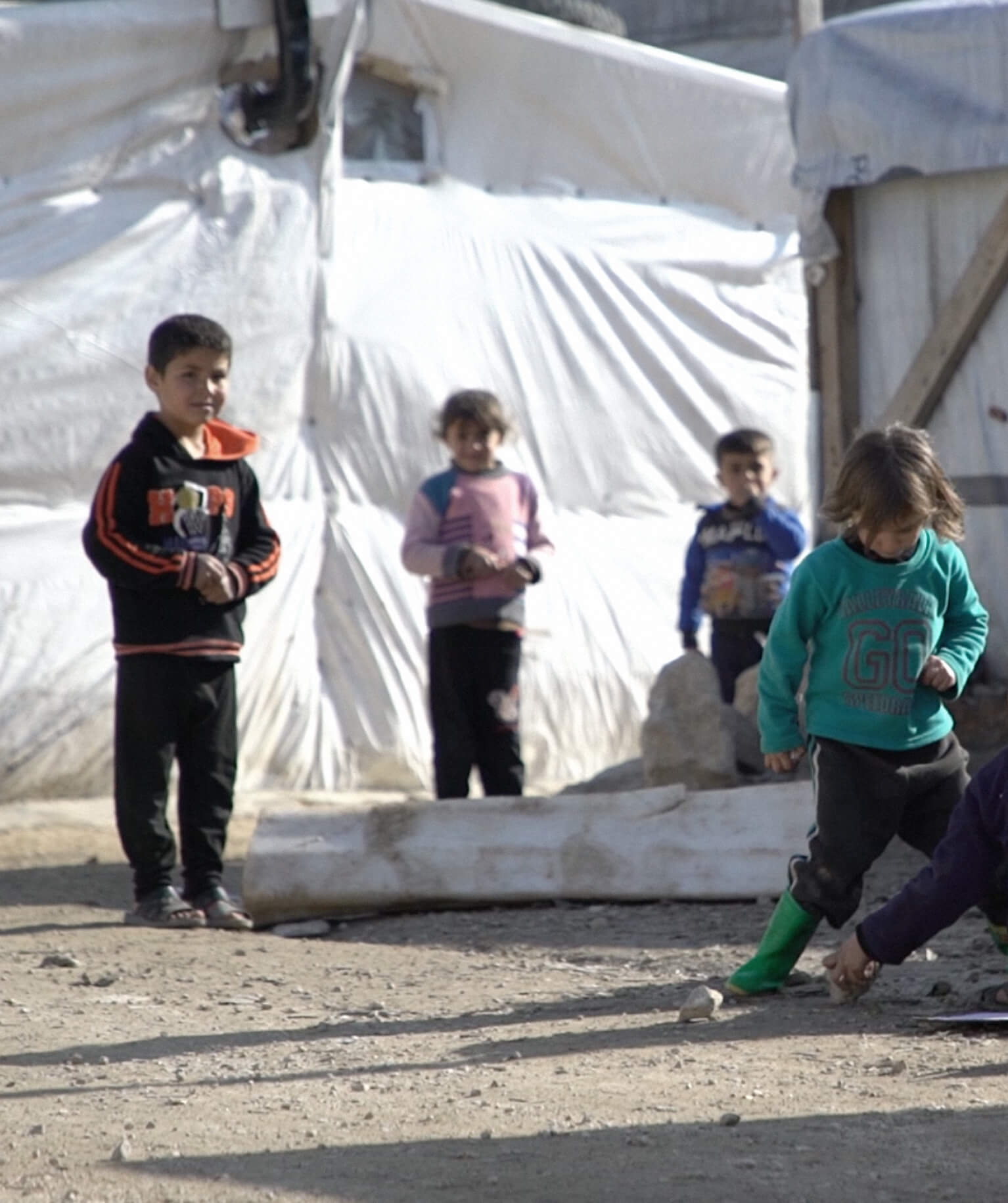A year later, she got married and moved to Damascus. One day, her husband went missing and there was no information on his whereabouts. Fatima was seven months pregnant and alone. Her mother came to get her, and they moved to a refugee camp in Lebanon.



